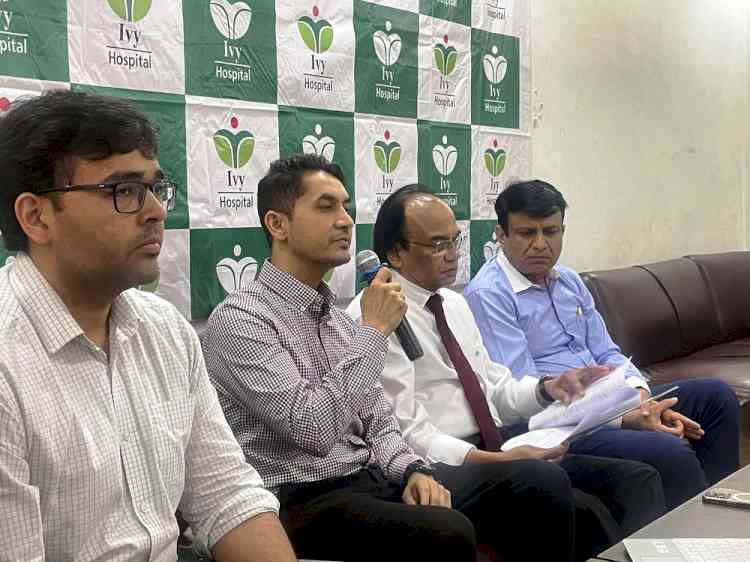REPORT: On rapid assessment of Cancer awareness and early detection campaign released
Author(s): City Air NewsStatewide campaign to be launched on Dec 1 Chandigarh, November 14, 2012: The core committee for Cancer Awareness and Early Detection constituted by the State Government under the chairpersonship of Vini Mahajan,...

Statewide campaign to be launched on Dec 1
Chandigarh, November 14, 2012: The core committee for Cancer Awareness and Early Detection constituted by the State Government under the chairpersonship of Vini Mahajan, Principal Secretary, Health and Family Welfare (PSHFW) held a meeting during which the committee considered and deliberated upon the report of the investigators Dr. Nidhi Bhatnagar, Senior Resident and Dr. J.S. Thakur, Additional Professor, School of Public Health, PGIMER, Chandigarh regarding Rapid Assessment of the Cancer Awareness Campaign carried on 2nd October 2012 in District Faridkot on pilot basis. The State Government is going to extend the campaign to entire Punjab w.e.f 1st December.
The report has indicated that the campaign was well supported by technical parameters like micro-planning, maps of the field areas and identification code to participating staff. Trainings were broadly adequate for all categories of staff. There was no major reported shortage of logistical support like survey materials and pamphlets by field workers in the campaign. It further stated that most of the
families visited knew about the campaign. Sources of information of the campaign were mainly from home visits followed by print media. Field workers (ASHA and Nursing students) were able to carry out their assigned work to a reasonable extent. On observation, they were aware of the signs and symptoms of cancer and were able to explain it to the public with the help of pamphlet. Houses surveyed randomly in rural and urban area for cross checking, were covered in the campaign.
Regular supervisory visits were made by the immediate supervisors and the program staff. Data Management was satisfactory in the survey except for substantial paper work reported by field staff. There were no significant operational problems in data transfer using mobile phones and computers by the field workers in the campaign.
The investigating team has however suggested that although there was reasonable awareness about the campaign, there is a need to propagate information among the people about the common risk factors and symptoms of cancer. Further, the report pointed that some workers covered nearly 30-40 houses per day, which could have compromised the quality of campaign. This may be a possible reason for completion of campaign early in almost two-third of the anticipated period. There is a need for referral cards to be given to the cancer suspects screened and the involvement of medical officer should be made more effective.
Vini Mahajan told that all issues pointed in the report will be taken care of along with the recommendations of the Investigating Team i.e. Covering Uncovered Houses, Focusing awareness strategies on common risk factors and signs and symptoms of cancer, using census data for calculating cancer rate instead of collecting population data again, designing of referral slips, and introducing a cancer tracking system. She further added that this special campaign has been launched to create mass awareness and early detection of cancer cases so as to ensure early registration and management of cases. The present study was undertaken to evaluate the pilot phase to provide inputs for the statewide campaign.

 cityairnews
cityairnews 















